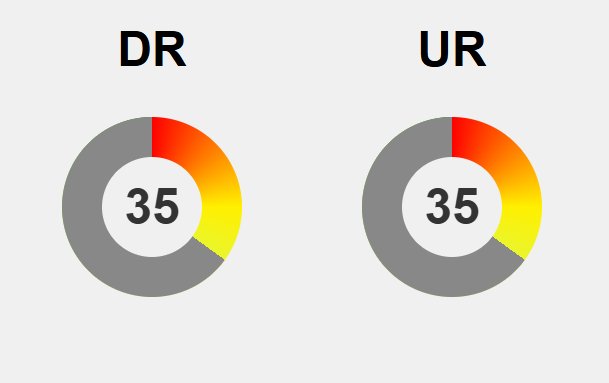Astrology promises to reveal our true nature through celestial patterns, but can the stars genuinely influence who we are and our life’s trajectory? This exploration delves into the enduring fascination with astrology, rooted in ancient symbolism that links cosmic movements to personality traits and life decisions. While many find comfort and identity in their birth charts and zodiac signs, scientific research consistently finds no empirical evidence supporting these claims. Critics point out the lack of a physical mechanism and highlight how broad, vague predictions often rely on psychological biases like the Forer effect and confirmation bias. Despite its scientific shortcomings, astrology maintains a powerful cultural presence, offering a symbolic language that fosters community, self-reflection, and coping with uncertainty. This contrast between its meaningful psychological role and unsupported scientific basis prompts us to question: Is astrology merely a cultural artifact, or does it tap into a deeper human desire to find meaning in the stars?
Unveiling the Cosmos: How Astrology Connects Stars to Your Identity
Astrology has been captivating humans for thousands of years, offering a symbolic link between the cosmos and our personal lives. It’s a practice rooted in the idea that the positions of planets, stars, and other celestial bodies at the moment we’re born can reveal important insights about who we are. Whether seen as a spiritual guide or a cultural tradition, astrology remains a fascinating way to explore identity and purpose.
Most of us are familiar with the concept of a zodiac sign—those familiar names like Aries or Leo that correspond to specific birth dates. But astrology goes far beyond just the sun sign. It considers the positions of the moon, planets, and the twelve zodiac houses, which represent different life areas like love, career, and home. All these elements come together in a personal birth chart, or natal chart, which many believe is a map of one’s personality, strengths, and potential life path.
This chart is often viewed as a snapshot of the sky at the exact moment you were born, encapsulating a symbolic language that describes your traits and tendencies. The idea is that celestial movements imprint a kind of blueprint on each individual, influencing thoughts, emotions, and decisions in subtle but meaningful ways. People turn to astrology to better understand themselves, find guidance, or simply enjoy a sense of connection to something larger than themselves.
While astrology’s roots stretch back to ancient civilizations like Mesopotamia, its core idea has persisted across cultures and eras. Over time, it has evolved into a complex system of interpretations and tools, blending spiritual, cultural, and even technological elements. Today, it’s more accessible than ever, with apps, horoscopes, and personalized readings that keep this age-old tradition alive in modern life.
Despite its popularity, astrology faces widespread skepticism from the scientific community. Critics argue that there’s no empirical evidence to support celestial influences on our personality or destiny. Yet, millions find comfort or insight in the idea that the universe leaves an imprint on us from the moment we’re born—whether as a spiritual truth or a symbolic language that helps make sense of ourselves and our experiences.
Ultimately, astrology invites us to see ourselves through a different lens, one that connects us to the universe in a poetic way. Whether you view it as a meaningful truth or a cultural artifact, its enduring appeal lies in its ability to spark curiosity and reflection about who we are and where we’re headed.
Celestial Beliefs: Decoding How Planets and Signs Shape Your Life
Many core beliefs underpin astrology’s worldview, centering on the idea that celestial bodies—like planets, stars, and the moon—emit energies or influences that reach us here on Earth. Practitioners argue that the exact positions of these bodies at the moment of your birth create a cosmic blueprint, shaping your personality, strengths, weaknesses, and even your life’s direction. Instead of physical forces, these influences are seen as symbolic energies that subtly affect different aspects of who we are and how we behave. The relationships between planets—called aspects—are also key, as they’re believed to influence how these energies combine or conflict within us, adding nuance to personal traits.
Many believers see their birth chart as a map that reveals their true self. They interpret the positions of planets and zodiac signs at the time of birth as setting the stage for their life experiences. For example, a prominent Mercury might indicate someone skilled in communication, while a strong Mars suggests assertiveness and drive. These planetary placements are thought to influence decisions, emotional responses, and even the challenges a person might face. Although these ideas are rooted in symbolism rather than scientific proof, they form the foundation of how astrology explains human behavior through a cosmic lens.
Zodiac signs play a significant role in this belief system. Each sign—like Leo, Scorpio, or Capricorn—is associated with specific personality traits, and many people find these descriptions resonate with their own experiences. For instance, Leos are often described as confident and charismatic, while Cancers are seen as nurturing and sensitive. Critics argue that these traits are broad and general enough to fit many people, functioning more like flattering stereotypes than precise profiles. Still, for millions, zodiac signs serve as a mirror—helping them make sense of their identity and their place in the world.
In addition to zodiac signs, astrology emphasizes the influence of planets in shaping our inner lives. Each planet is believed to govern particular qualities: Mercury influences communication, Venus colors our approach to love, and Mars fuels our assertiveness. The way these planets are positioned at your birth is thought to create a unique combination of energies that guide your actions and reactions. For example, someone with a strong Venus might prioritize harmony and relationships, while a person with dominant Mars could be more action-oriented. These planetary influences act as cosmic keys to understanding what motivates us and how we navigate life’s choices.
While many find meaning in these beliefs, scientific evidence supporting astrology’s claims remains lacking. Critics point out that there’s no known physical mechanism by which planets could influence personality traits or destiny in the way astrology suggests. The correlations drawn are often broad and open to interpretation, which allows for confirmation bias—people remembering the hits and forgetting the misses. This reliance on symbolism and subjective interpretation helps astrology stay relevant in popular culture, even as it remains outside the realm of scientific validation.
Science vs. Stars: The Skeptical Look at Astrology’s Claims
The scientific community generally approaches astrology with a healthy dose of skepticism, mainly because its core claims lack solid evidence. Despite its enduring popularity, numerous rigorous studies have failed to demonstrate any reliable links between celestial positions and personality traits or life outcomes. When tested under controlled conditions, astrologers’ abilities to match birth charts with personality profiles perform no better than chance, casting serious doubt on astrology’s claims.
One of the biggest issues is the absence of a plausible physical mechanism. There’s no known force or influence from planets and stars that could meaningfully shape human behavior or decisions. The gravitational pull of distant planets is negligible compared to everyday forces, and no scientific principle supports the idea that celestial bodies emit energies that impact our inner lives. Without a credible mechanism, the symbolic interpretations of astrology remain just that—symbolic, not scientific.
Many correlations drawn by astrology are so broad they could fit nearly anyone. This vagueness enables the Forer effect, where people interpret generic statements as highly accurate descriptions of themselves. Horoscope predictions and personality traits often rely on language that’s sufficiently general to apply to a wide audience, making them easy to accept as meaningful. This psychological trick fosters belief even in the absence of any empirical support.
Repeated studies have confirmed that astrology’s supposed influences are no better than random guesses. For example, research published in *Nature* in the 1980s showed that astrologers could not reliably match natal charts to personality assessments. When scientists attempt to predict traits or behaviors based on celestial data, the results remain indistinguishable from chance. Such findings highlight the fundamental disconnect between astrology’s claims and scientific reality.
Confirmation bias also plays a key role in sustaining belief. People tend to remember the predictions that seem to come true while dismissing those that don’t. When an astrology reading appears accurate, it’s recalled vividly; when it misses, it’s quickly forgotten. This selective memory reinforces the illusion of astrology’s validity, despite overwhelming evidence to the contrary.
Most scientists classify astrology as a pseudoscience—an activity that mimics scientific methods but doesn’t withstand rigorous testing. Its claims about celestial influence lack a physical basis and are unsupported by biology or physics. While astrology can serve as a cultural or psychological tool, it shouldn’t be relied upon for genuine insights into personality or destiny. Its popularity, driven by psychological biases and social trends, doesn’t change the fact that its core assumptions are unfounded in scientific evidence.
For those interested in understanding the scientific perspective on this topic, exploring reputable sources can provide valuable insights. To learn more about the evidence against astrology and its lack of scientific validity, visit Scientific American's article on astrology.
Guidance or Guesswork? The Practical Boundaries of Astrological Practice
People often turn to astrology for guidance in their daily lives, whether it’s choosing a good time to start a project, making relationship decisions, or planning major events. Horoscopes, personal readings, and compatibility charts are popular tools that provide a sense of reassurance or direction. Many find comfort in the idea that celestial influences can help them navigate uncertainty, offering a symbolic framework to understand their experiences. However, scientific research repeatedly shows that these predictions lack any solid evidence and tend to be broad enough to apply to almost anyone.
Despite its widespread use, astrology relies heavily on symbolism and tradition rather than scientific fact. When someone reads a daily horoscope, they’re often encountering vague statements that could fit many different situations. This broadness, known as the Forer effect, makes the predictions feel personal and meaningful, even though they are generally nonspecific. Many people find this comforting or inspiring, but the lack of empirical support means these insights shouldn’t be taken as factual truths.
People also use their birth charts as tools for self-reflection, seeking clarity about their strengths, challenges, and potential life paths. They might consider planetary positions when making decisions about careers, relationships, or timing important events. While these practices can foster introspection, relying solely on astrology for major life choices can lead to misguided decisions or unnecessary anxiety. It’s easy to attribute outcomes to celestial influences when, in reality, practical factors are often more relevant.
From a scientific standpoint, the limitations are clear. Controlled studies have consistently failed to demonstrate any reliable connection between planetary positions and personality traits or life events. The physical influence of distant planets on human behavior is negligible, and no credible mechanism explains how celestial bodies could affect our inner lives. The broad, vague nature of astrological predictions makes them susceptible to confirmation bias, where people remember the hits and forget the misses, creating a false sense of accuracy.
Many individuals find psychological comfort or entertainment in astrology’s symbolic language, which can serve as a mirror for self-exploration or a conversation starter. It offers a narrative that helps make sense of complex feelings or uncertainties. But it’s crucial to see astrology as a cultural or psychological tool rather than a science—something that can inspire reflection, not replace evidence-based decision-making.
In the end, astrology’s practical use is limited. While it can provide a framework for understanding oneself and foster a sense of connection to the universe, it shouldn’t be relied on for making serious decisions. Its predictions are rooted in tradition and symbolism, not scientific validation. Recognizing these boundaries helps prevent overconfidence in astrological guidance, encouraging us to balance introspection with rational judgment and empirical evidence.
Stars in Society: How Astrology Influences Decisions and Cultural Bonds
Many turn to astrology when facing important decisions, finding comfort in the belief that celestial patterns can guide their choices. People might delay career moves, plan significant events, or seek reassurance about relationships based on horoscopes or birth chart readings. This reliance provides a sense of certainty in uncertain times, making life feel more manageable and connected to a cosmic order. For some, astrology acts as a personal compass, offering a framework for understanding their experiences and easing anxiety about the future.
Culturally, astrology fosters a sense of community and shared identity. Zodiac signs serve as social markers—people bond over their signs, exchange horoscopes, and participate in astrology-themed conversations. Online communities and social media platforms amplify these practices, creating trends around compatibility, daily forecasts, and personalized readings. These collective rituals reinforce belonging, even if the underlying claims lack scientific backing, making astrology a social glue that brings people together through common symbols and narratives.
However, this influence on decision-making can be problematic if taken too literally. Vague predictions and broad personality descriptions often lead individuals to make choices based more on wishful thinking than rational analysis. For instance, someone might avoid a promising job opportunity because their horoscope suggests it’s an unfavorable time, ignoring practical factors. Relying solely on astrology can distort personal agency, fostering dependency on external cues rather than sound judgment, which may result in missed opportunities or unnecessary stress.
Psychological biases also play a role in sustaining belief in astrology. The confirmation bias causes people to remember the hits—when predictions seem accurate—while dismissing the misses. If a horoscope aligns with a particular decision or mood, it’s seen as validation. Conversely, inaccuracies are quickly overlooked. This selective memory reinforces a perception of astrology’s reliability, despite clear evidence that its influences are largely illusory. The pattern of remembering successes and forgetting failures keeps belief alive, even in the face of scientific skepticism.
Despite its shortcomings as a scientific tool, astrology’s impact remains significant because of its cultural and psychological appeal. It offers a language of symbolism that helps people articulate feelings, find meaning, and foster community. For many, it becomes a way to explore identity, cope with uncertainty, or connect with something larger than themselves. Recognizing its role as a symbolic framework rather than a factual science allows us to appreciate its influence without overestimating its validity. While science may not support its claims, astrology’s place in human culture endures through personal and social significance.




